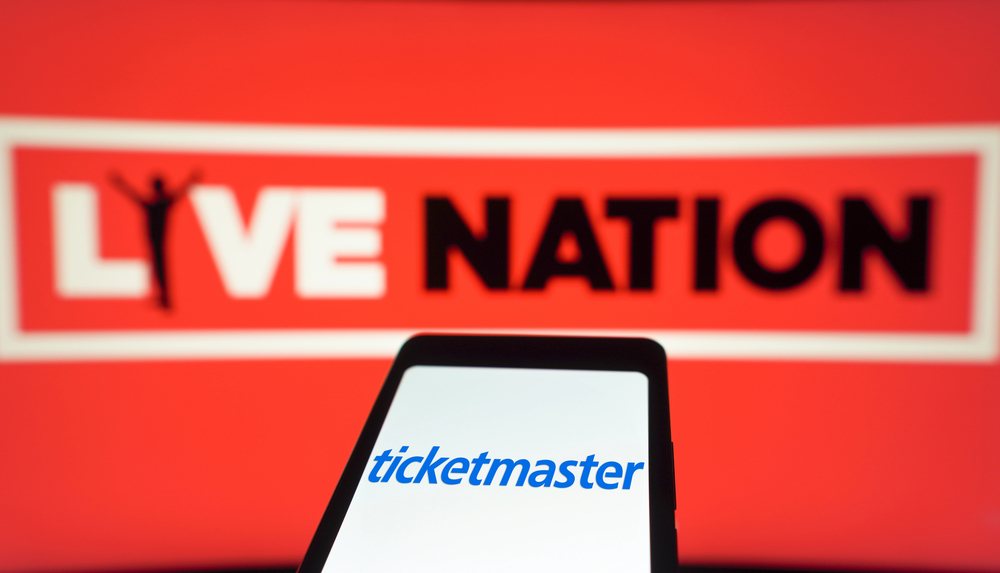Last month, the U.S. Department of Justice (DOJ) finally came out with their long anticipated antitrust lawsuit against Live Nation Entertainment. Alleging anti-competitive practices which “suffocates its competition,” everyone’s least favorite Attorney General (since the last one, and the one before that, and the one before that…) Merrick Garland, announced gleefully to cameras that it was “Time to break up Live Nation.”
Yes, even though the allegedly offending entity of Live Nation’s business, Ticketmaster, has seen its market share decline since its acquisition by Live Nation Entertainment in 2010, somehow competition is suffering, and thereby so too necessarily are consumers; lucky for us a bunch of unelected bureaucrats are on the job!
Yeah, right.
Those eager fans of concerts or other events who might be tempted to cheer at the prospect of the promise of lower prices should keep their seats, quite literally, because nothing of the sort is on the horizon.
First off, by their own admission the overwhelming majority of the money paid for a ticket goes to the artist or entertainer in question. For example, and to keep the math easy and straightforward, on average of the $100 paid for a ticket, 90% of that flows to the artist.
Second of all, it is the artists—really, their management teams—that set or approve the prices of the tickets.
What is causing high ticket prices, therefore, is the demand people have for event tickets; and unless a lot of the people currently desirous of going to these events choose otherwise, prices will remain where they are whatever the government does. Otherwise we’ll start seeing fewer dates posted by artists and at fewer, larger venues.
This is all something a first year econ student at a decent program could tell you.
But, of course, such real world microeconomic questions of supply and demand are not what motivate such policies as antitrust. Rather, it is ideology.
Like complaints about dynamic pricing and utilization of informational asymmetries by producers to maximize their surplus, at bottom is the myth that there is some magical amount of market competition that is “ideal,” and that by using some metric, like the Herfindahl-Hirschman Index, government economists will be able to manage the economy in such a way that it is as efficiently productive as possible; i.e. that the highest quality goods are widely available to all at the cheapest possible prices.
The problem, you see, from the vantage point of the concerned government bureaucrat is that consumers just aren’t smart enough—they don’t think to look ahead like the wise old government bureaucrats that should rightfully be in charge of things! When looking at what item to buy, Consumer A doesn’t consider that by buying the best and cheapest product available they are increasing that producer’s market power; the same goes for Consumers B, C, D, et cetera. What they fail to appreciate is that by buying from the best producer available they will drive all the less efficient producers of that good out of the market.
Some of these consumers, ostensibly, just need to take one for the team and throw a bone to the more expensive, poorer quality goods produced by alternative providers.
Failing that, the kindly old government will step in and take care of it for us by breaking up these efficient and potentially market dominating firms into smaller and less productive firms, thereby leveling the playing field.
…how nice…for us…
The truth is that government interventions in the market create externalities and increase costs across the board in the name of satisfying their ideological predilections—see the Joe Biden administration’s recent ridiculous blockages of mergers in the grocery and airline industries, places we all want higher prices, am I right?
Economies of scale benefit consumers period, and the best judge of what to buy, when to buy it, where, and at what price is the concerned consumer.
Apart from all the above facts is the fairly conspicuous timing, and the suspicion that this move by Biden’s DOJ represents Live Nation Entertainment being sacrificed on the alter of politics as the Biden administration seeks to score points with key demographics in an election year.
Higher prices? Blame corporate greed!
The DOJ should lay off Live Nation.

































